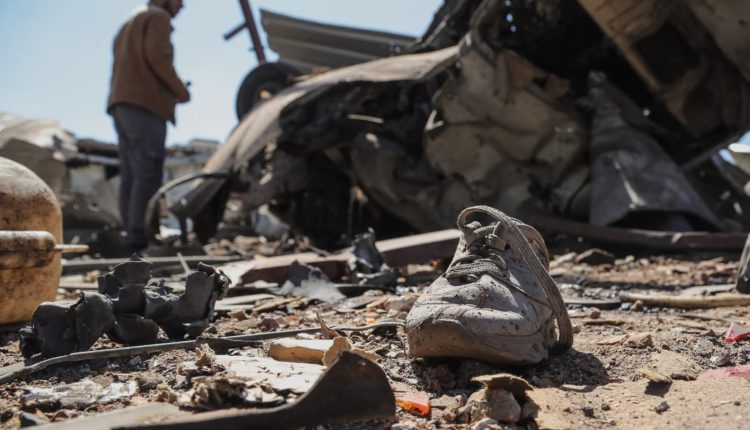As War Rages in Yemen, the United States Evades Responsibility
In recent months, the war in Yemen saw a major burst of violence, featuring dramatic increases in military attacks, battlefield deaths, and civilian suffering, most of it receiving little attention in the United States.
As the world’s attention has focused on the Russian invasion of Ukraine, the Yemen Data Project has documented a large spike in air raids in Yemen, marking one of the largest escalations in the war over the past several years.
“Currently, we’re in a state of escalatory military action,” Timothy Lenderking, the U.S. Special Envoy for Yemen, said in a public address early last month.
The U.S. role has been so critical that some observers have suggested that the United States could end the war by ending its support of Saudi Arabia.
As the war intensified, it faded from public view, even as the suffering of the Yemeni people worsened. In one of the greatest blows to public oversight, the U.N. Human Rights Council ended the mandate of a U.N. expert panel on Yemen, which had been documenting human rights violations in the country.
“This is a time to increase, not abandon, attention to Yemenis trapped in war zones,” Kathy Kelly wrote in The Progressive.
The war in Yemen has been raging for nearly a decade. Major parties to the war include the Houthis, who seized power in a revolution in 2014, and a military coalition led by Saudi Arabia, which launched a military intervention in 2015 with the goal of restoring the ousted Yemeni government to power. The United States backs the Saudi-led military coalition.
The war has created what has been called the worst humanitarian crisis in the world. More than twenty million people require humanitarian assistance. An estimated twelve million people are living in acute need, meaning that they need aid to sustain their livelihoods. More than four million people are internally displaced.
An estimated 377,000 people have died in the war. Nearly 60 percent of these deaths are due to the humanitarian crisis, which is making it nearly impossible for the Yemeni people to access food, water, and health care. Most of these indirect deaths have been young children, who have been devastated by malnutrition.
A study commissioned by the United Nations Development Programme estimates that, in 2021, a Yemeni child under the age of five died every nine minutes due to factors related to the war.
“The situation is really devastating across the country and is going from worse to worse, and the recent spike in violence is worsening the very serious humanitarian situation,” Khalida Bouzar, a U.N. official, said early last month.
In Washington, D.C., many officials blame the Houthis for the crisis. Ned Price, a State Department spokesperson, said in January that the Houthis are the “one actor that is primarily responsible for the suffering of the Yemeni people.”

